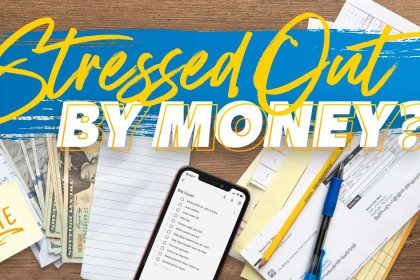Credit card debt can feel like a heavy burden, restricting your path to financial freedom and could even cause stress and anxiety. However, there are effective strategies to take control of your debt and start working towards a more secure financial future. This article will guide you through practical steps you can take to manage and eventually eliminate your credit card debt.
Understanding Your Debt
The first step to managing your credit debt is understanding it. Create a list of all your credit cards, noting the outstanding balances, interest rates, and minimum monthly payments for each one. Whether you chose the avalanche, snowball, or debt consolidation repayment method, this will give you a clear picture of your total debt and help you prioritize which cards to focus on first.
Setting a Budget
Creating a realistic and sustainable budget that you routinely check is crucial for managing debt. Begin by tracking your monthly income and expenses to identify areas where you can cut back. Allocate a portion of your budget specifically for paying down your credit card debt. Remember, even small sacrifices can accumulate over time and make a big difference in reducing your debt.
Choosing a Credit Card Debt Repayment Strategy
There are several effective repayment strategies you can choose from, depending on your financial situation and preferences:
1. The Snowball Method:
Focus on paying off the smallest debt first while making minimum payments on your other cards. Once the smallest debt is paid off, move on to the next smallest, and so on. This method can provide a psychological boost as you see debts disappearing one by one.
2. The Avalanche Method:
Prioritize paying off the debt with the highest interest rate first while making minimum payments on others. This method saves you more money in interest over time but might take longer to see significant progress.
3. Debt Consolidation:
Consider consolidating your debts into a single loan with a lower interest rate. This can make your debt easier to manage and potentially reduce the amount of interest you pay. Be sure to research and compare consolidation options to find one that best suits your needs. Consider reaching out to a non-profit like American Consumer Credit Counseling.
Negotiating with Creditors about Credit Card Debt
Don’t hesitate to reach out to your creditors and explain your financial situation. They may be willing to lower your interest rate, waive fees, or offer a more manageable repayment plan. It’s in their interest to help you repay your debt, so it’s worth asking.
Seeking Professional Help
If your debt feels overwhelming, consider seeking help from a certified credit counseling agency. These organizations can provide personalized advice and help you create a debt management plan. They can also negotiate with creditors on your behalf and may offer educational resources to improve your financial literacy.
Avoiding Future Debt
Managing your current debt is important, but it’s equally crucial to avoid falling back into debt in the future. Here are some tips to help you stay debt-free:
- Build an Emergency Fund: Aim to save at least three to six months’ worth of living expenses. This will provide a financial cushion in case of unexpected expenses and prevent you from relying on credit cards.
- Use Credit Wisely: Limit your credit card use to essential purchases and avoid impulsive spending. Pay off your balance in full each month to avoid interest charges.
- Monitor Your Credit Score: Regularly check your credit report to ensure there are no errors and to track your progress. A good credit score can help you qualify for better interest rates and financial products.
Staying Motivated
Paying off credit card debt can be a long and challenging journey, but staying motivated is key. Set small, achievable goals and celebrate your progress along the way. Whether it’s paying off a specific amount or reducing your overall debt by a certain percentage, recognizing your achievements can keep you focused and encouraged.
Take Control of Your Credit Card Debt and Stay Motivated
Taking control of your credit card debt is not only possible but also empowering. By understanding your debt, setting a budget, choosing a repayment strategy, negotiating with creditors, seeking professional help, avoiding future debt, and staying motivated, you can work towards a debt-free future. Remember, every step you take, no matter how small, brings you closer to financial freedom. Stay hopeful and determined, and you’ll find yourself on the path to a brighter financial future.
If you’re struggling to pay off debt, schedule a free credit counseling session with ACCC today.
Read the full article here


















